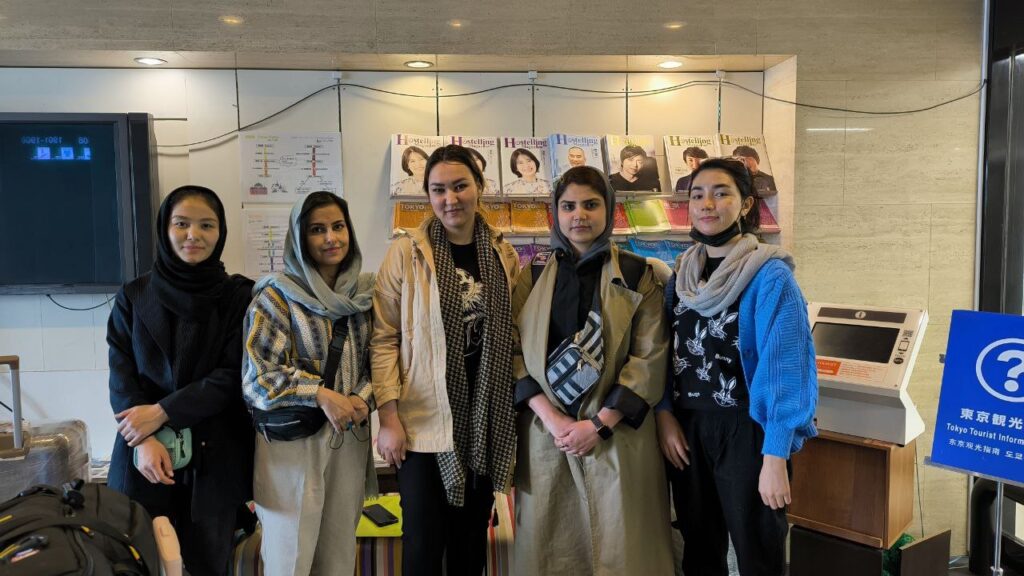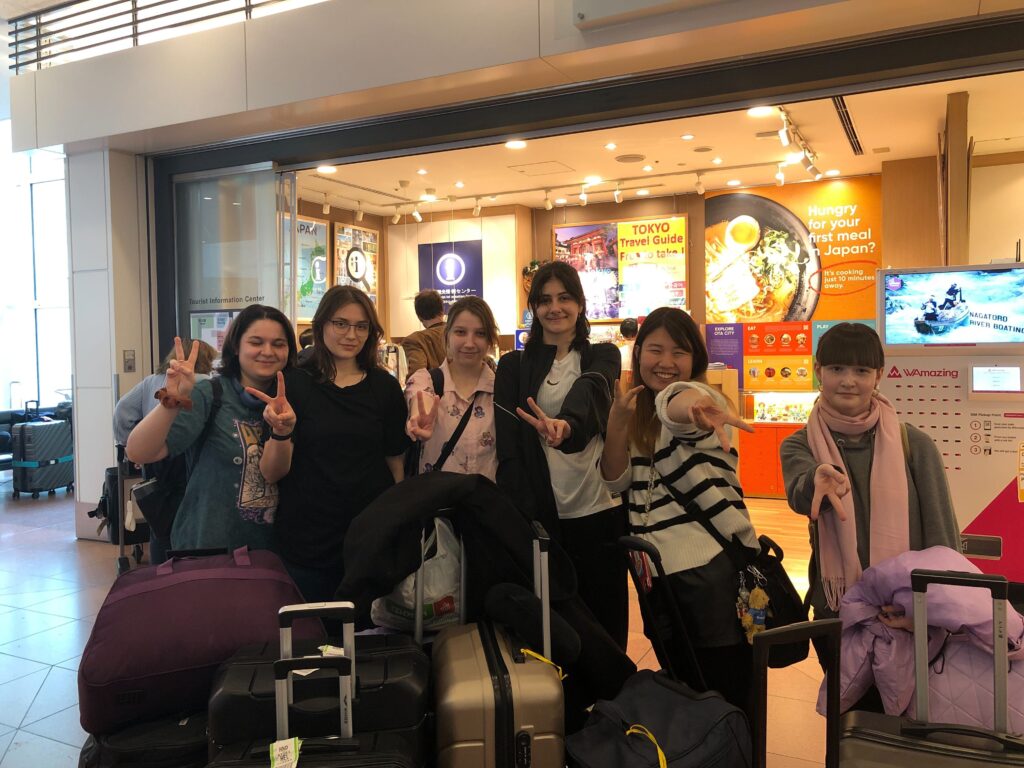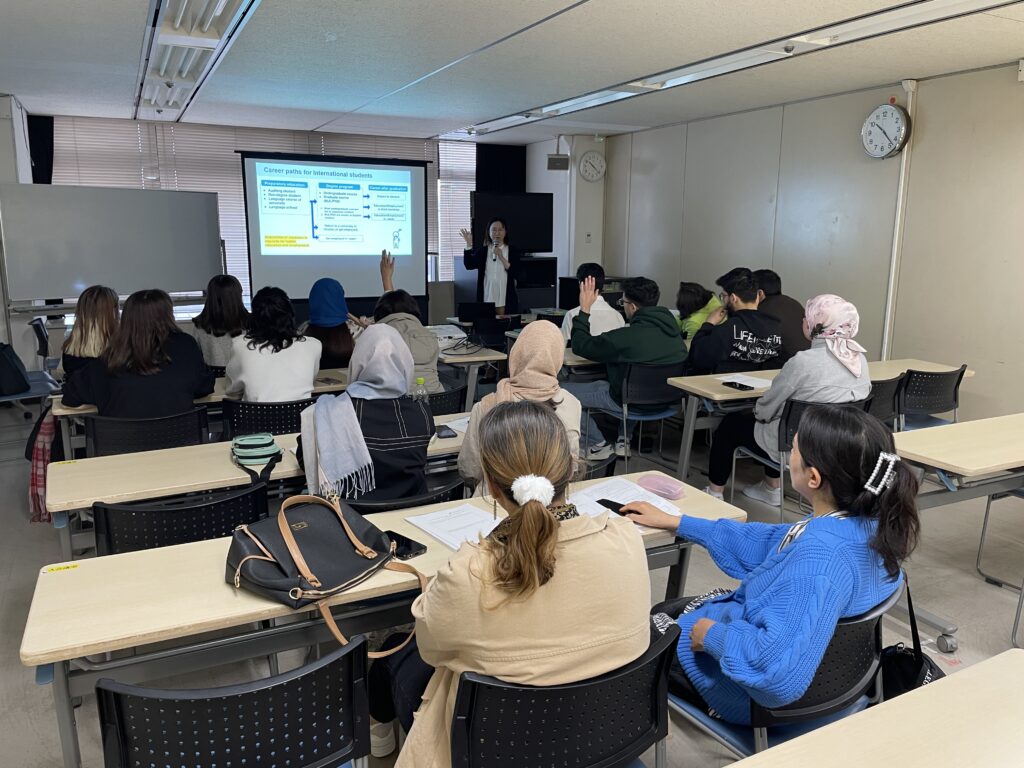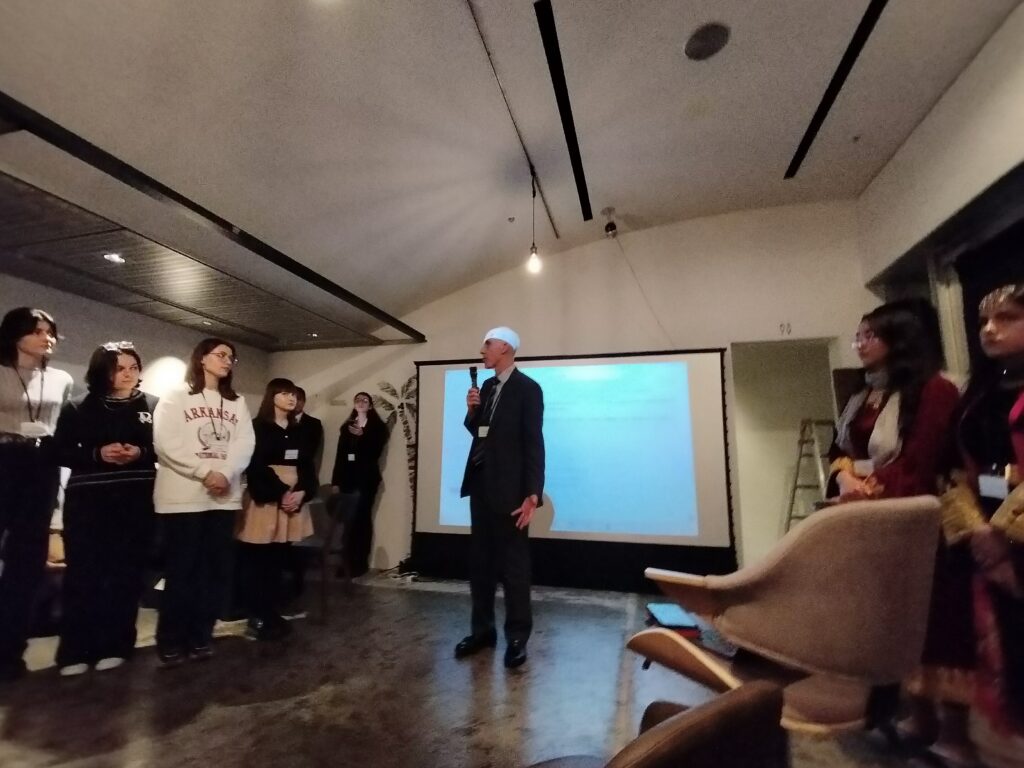Pathways Japan offers two programs for students with refugee backgrounds from Syria, Afghanistan, and Ukraine to study in Japan: “Japanese Language School Pathways,” in which students study at a Japanese language school for two years to pursue higher education or employment, and “University Pathways,” in which students study at a university that provides Japanese language education and higher education. This year, we admitted 22 new students from three countries and will support them in Japan.
Five students for the University Pathways program arrived in mid-March, and 17 students for the Japanese Language School Pathways program arrived in early April to begin their first steps in life in Japan.
In addition to the above, seven Ukrainian students who had evacuated to Japan were newly admitted for University Pathways, bringing the total number of students we have admitted and walked together with in Japan to 177 since the start of the program in 2017.



<FY2024 Admission program>
University Pathways: 12 students
・Ukraine: 11 (4 newcomers from outside Japan, 7 from universities and Japanese language schools in Japan)
・Syria: 1 (newcomers from outside Japan)
[Admitting Institutions] Kansai University, Soka University, Daito Bunka University, Tokyo Woman’s Christian University, Bunkyo Gakuin University, Ryukoku University
Japanese Language School Pathways: 17 students
・Syria: 6 students
・Afghanistan: 6 (1 of them will come to Japan in mid-April)
・Ukraine: 5 students
[Admitting Institutions] ICLC Okinawa Japanese Language School, ABK College, Kyoto Minsai Japanese Language School, Kurashiki Language Academy, Sendai International School of Japan, Tokyo International Japanese School, Tokyo Meisei Japanese Language Academy, Japan International Institute of Cybernetics Department of Japanese, Funabashi Japanese Language Academy
More than 1,000 applicants from Syria, Afghanistan, and Ukraine applied for the two programs in 2024 . While civil war, conflict, and oppression have left many young people without hope in their home countries or in countries where they have fled as refugees, we received applications from many highly motivated young people who wanted to pave their future in Japan. In particular, all six of the students who came to Japan from Afghanistan this time were women, as women in Afghanistan are not allowed to receive secondary or higher education or to work under the rule of the Taliban. By admitting them into Japan, we are opening up the possibility for them to pursue higher education or find work and become self-reliant in the future.
Pathways Japan provides consistent support from pre-arrival to post-arrival so that students can quickly establish a stable life in Japan, acquire Japanese language skills through two years of Japanese language education, and lead independent lives in Japan in the future through higher education and employment. Before coming to Japan, we conducted online basic-level Japanese language study and provided various information such as culture shock and how to prepare for finding a part-time job studying Japanese. (*Please click here for more information about our pre-arrival activities.) After their arrival in Japan, we held an intensive 3-day orientation. The orientation provided information on career development, mental health, disaster preparedness, preparation for gender-based incidents, part-time job interview exercises, and other information necessary for students with refugee backgrounds to live in Japan in the future. Some parts of orientation were led by senior students from each country, who provided advice on adapting to Japanese culture and customs, learning Japanese, finding a part-time job, and preparing for their future career paths, based on their own experiences. For the students who came to Japan, the orientation provided them with a lot of information for their future life in Japan, as well as an opportunity to build a network with other senior students that they can rely on.


On the day following their arrival, a welcoming reception event was also held, inviting guests who support the program and the students, which was a step for new arrival students to build a network in Japanese society. Six representatives of the students who came to Japan gave speeches, strongly explaining why they chose to come to Japan and their future goals after overcoming difficulties in their home countries. Half of the students delivered their speeches in Japanese, and many of the participants were impressed by their Japanese language skills and ambition. Also, Mr. Ed Shapiro from the Shapiro Foundation joined the reception from the U.S.


The universities and Japanese language schools where students study are spread throughout Japan, including Miyagi, Chiba, Tokyo, Kyoto, Okayama, and Okinawa. After moving to the area where the universities or Japanese language schools are located, the students will move into a new residence, complete various procedures such as registering for a certificate of residence, and begin studying Japanese at each educational institution. At the same time, they find part-time jobs and start working to expand their connection with Japanese society.
Pathways Japan will continue to support the students as they set up their lives and will continue to meet with them on a regular basis to help them overcome various difficulties and find and realize their career goals in Japan.
